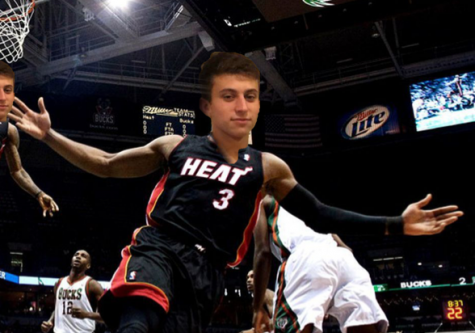Republican students struggle to be viewed equally
October 28, 2016
While students are often quick to confront Republican ideals, there are often misconceptions surrounding the true viewpoints of many Republicans.
“I think in our public discourse about politics now it’s very heated, and very confrontational and polarized,” history teacher Rick Cardis says.
Students who have Republican views are often singled out and ridiculed by their peers, and their ideals are not seen as legitimate or feasible.
“I see a lot of times that when I say something, particularly towards my views on the economy, it’s often looked at as ridiculous,” senior Josh Shawver says.
Shawver adds that when he explains his views and principles to his peers, many tend to have a better understanding of what he stands for and have more respect for his opinions.
With the continuous public outcry surrounding a stream of lewd comments from Republican nominee Donald Trump, it is easy to stereotype all Republicans as having the same views as him. Students are quick to bash any republican ideas that their peers present in class.
“I think that the animosity between each political party has gone too far,” junior Joey Fitzgerald says, “It prevents us from actually getting down to the issues and trying to fix the problems in our society.”
While it can be subject to bias, the heavy presence of liberal views in Evanston does present the teaching community with some freedoms that may not potentially be available in other parts of the country.
“In a lot of ways, I feel liberated. As a teacher I can talk about certain issues that I maybe wouldn’t be able to talk about as openly in other places, such as same sex marriage,” Cardis explains.
According to Forbes Magazine, only 14 percent of American college professors identify as Republican. The very apparent lack of Republican educators lends itself to many situations of potential bias.
While the ETHS curriculum does mandate that students must be educated on all political parties and views, it is hard to eliminate bias due to such an overwhelming population of liberals. Yearly seminars or lessons can be implemented to educate students about these differences, not just specifically around election time.
An important note: multiple anonymous students declined to be interviewed for this story as they felt they would be viewed poorly by their peers.
For more information about this topic, visit www.instituteforcivility.org, and visit the “Implicit Bias, Political Bias” article.









